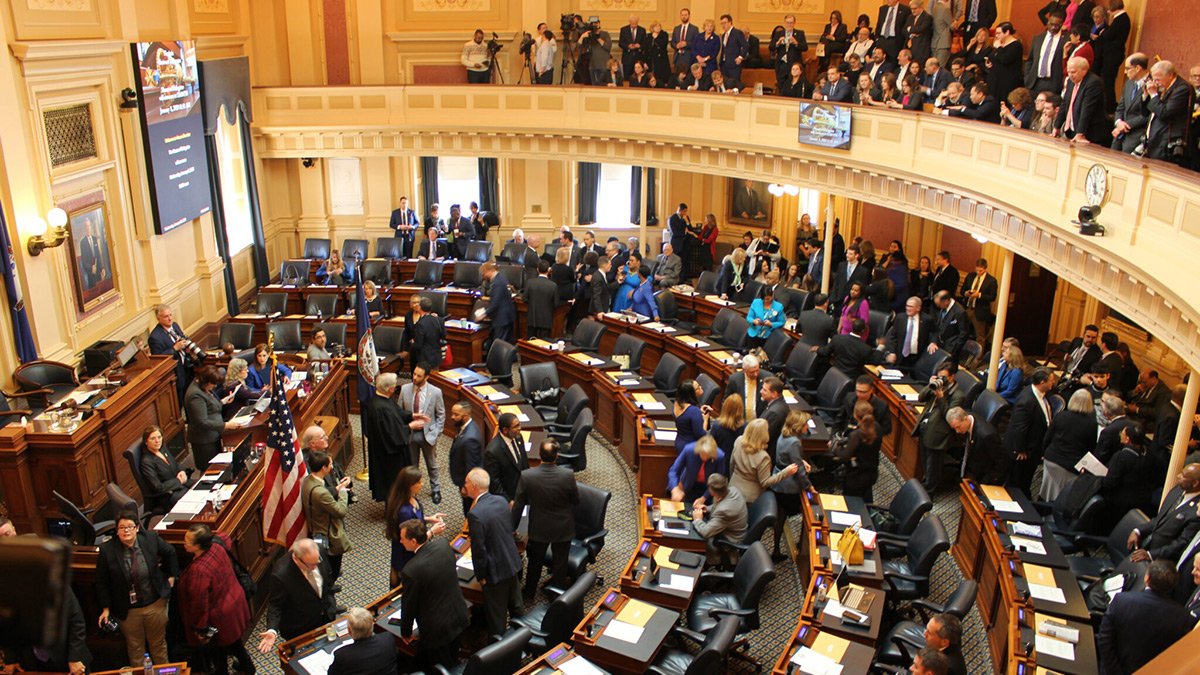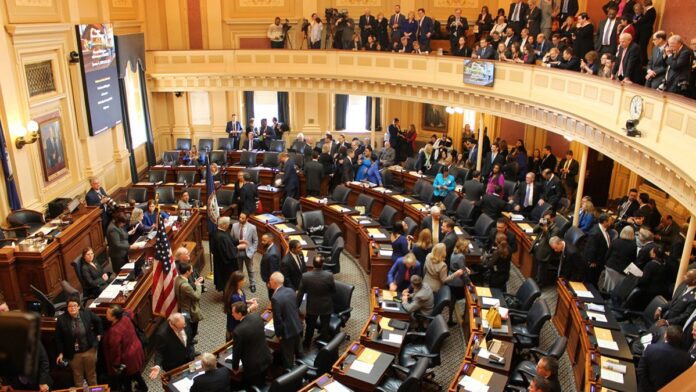
The fate of slots-like skill games in Virginia convenience stores and truck stops remains uncertain as the state Senate voted to reject Gov. Glenn Youngkin’s proposed changes to a bill aimed at legalizing and taxing these gambling machines on Wednesday.
Virginia Mercury reported that the Senate voted 34-6 against the governor’s amendments, opting to return the legislation to Youngkin in its original form. This bipartisan action increases the possibility of a veto from the governor, potentially maintaining the prohibition of skill games statewide, as imposed by former Gov. Ralph Northam.
However, lawmakers announced plans for a special session later in the spring to discuss the state budget, offering an opportunity to reconsider the skill game issue.
“I recognize that this bill faces an uncertain future if it goes back to the governor’s desk. But… I stand with small businesses in every corner of our commonwealth urging the governor to do right by small businesses and sign this bill,” Sen. Aaron Rouse, D-Virginia Beach, was quoted as saying in the report.
Virginia’s ban on these machines, enacted in 2020 but delayed until 2021 due to COVID-19, was suspended for nearly two years amid legal challenges from the skill game industry. The Supreme Court of Virginia reinstated the ban in late 2023, prompting a renewed lobbying effort by skill game advocates.
Despite initial momentum, the bill faced opposition from Youngkin, who proposed amendments in February expressing “serious concerns” about the proposal. His amendments included higher tax rates, increased regulatory measures, and strict geographic limitations that would effectively ban the machines in most metro areas.
Youngkin’s suggested tax rate of 35% differed from the General Assembly’s approved rate of 25%, sparking debate over the potential impact on operators. In a statement on Wednesday, the governor’s office reiterated concerns about the legislation while expressing openness to revisiting geographic limits.
Supporters of legalizing skill games claim legalization is an issue of fairness, citing Virginia’s existing gambling regulations and the revenue generated for small businesses. However, opponents caution against a gambling free-for-all and criticize businesses that exploit legal loopholes for profit.
While the Senate considered a veto override, it ultimately did not proceed. The House of Delegates did not address the skill game bill, leaving the decision with the governor.
Key points of contention included geographic restrictions and local control provisions proposed by Youngkin. Additionally, regulations aimed at preventing underage gambling and addressing addiction were debated.
Youngkin’s version of the bill would have prohibited skill games within 35 miles of licensed casinos and Rosie’s facilities affiliated with the Colonial Downs horse racing track. The governor also suggested banning skill games within 2,500 feet of schools, day cares and places of worship.
Youngkin proposed giving cities and counties the ability to ban skill games locally. The governor had also suggested tougher regulations requiring the industry to verify the identity of players before they put money into the machines.
Del. Paul Krizek, a vocal critic of skill games, suggested that rejecting the 35-mile rule while considering other amendments could have avoided a potential veto, as per the report.
The debate drew attention from convenience store owners, who voiced concerns about the impact of Youngkin’s amendments. Earlier in the week, in a statewide display of dissent, convenience stores across Virginia ceased selling Virginia Lottery tickets to protest against the governor’s proposed regulations.
The Senate concluded its discussion on the skill game bill promptly, with minimal debate on specific policy proposals.
Original article: https://www.yogonet.com/international/noticias/2024/04/18/71808-virginia-senate-rejects-governor-youngkins-amendments-on-skill-game-legislation-uncertainty-looms














